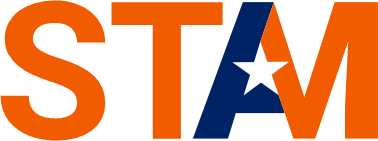In the pursuit of homeownership, understanding the intricacies of mortgage loans is crucial. Whether you’re a first-time homebuyer or looking to refinance, navigating the mortgage landscape can be a daunting task. This comprehensive guide aims to demystify mortgage loans, offering insights into types of mortgages, the application process, and key considerations for borrowers.
Section 1: Types of Mortgage Loans
1.1 Conventional Mortgages: Conventional mortgages are the most common type, typically requiring a down payment of 3-20%. The interest rates may vary based on credit scores, with higher scores often securing better rates.
1.2 FHA Loans: Backed by the Federal Housing Administration, FHA loans are popular among first-time buyers, offering lower down payment requirements (as low as 3.5%) and more lenient credit score criteria.
1.3 VA Loans: Designed for veterans and active-duty military personnel, VA loans provide attractive terms, including no down payment and competitive interest rates.
1.4 USDA Loans: USDA loans cater to rural and suburban homebuyers with low to moderate incomes, providing 100% financing and favorable terms.
Section 2: The Mortgage Application Process
2.1 Pre-Approval: Getting pre-approved is a crucial first step. Lenders assess your financial situation to determine the loan amount you qualify for, giving you a realistic budget.
2.2 Documentation: Prepare financial documents, including proof of income, employment verification, credit history, and details about assets and debts. Having these in order streamlines the application process.
2.3 Down Payment: Save for a down payment, as it significantly impacts your mortgage terms. While 20% is ideal, many loan programs accept lower percentages.
2.4 Choosing a Loan Term: Decide between a fixed-rate and adjustable-rate mortgage. Fixed-rate offers stability, while adjustable-rate may be favorable if you plan to move or refinance within a few years.
Section 3: Key Considerations for Borrowers
3.1 Interest Rates: Understanding how interest rates impact your monthly payments is crucial. Stay informed about market trends and consider locking in a rate when it’s favorable.
3.2 Closing Costs: Factor in closing costs, which include fees for appraisals, inspections, and legal services. Some lenders offer assistance, but it’s essential to budget for these expenses.
3.3 Credit Score Management: Maintain and improve your credit score before applying for a mortgage. A higher credit score often results in lower interest rates.
3.4 Debt-to-Income Ratio: Lenders evaluate your debt-to-income ratio to assess your ability to manage monthly payments. Lowering your existing debt can enhance your mortgage eligibility.
Conclusion:
In the complex world of mortgage loans, knowledge is power. Armed with an understanding of the types of mortgages, the application process, and key considerations, you can embark on your homeownership journey with confidence. Remember, each borrower’s situation is unique, so seek personalized advice from mortgage professionals to make informed decisions tailored to your financial goals.
